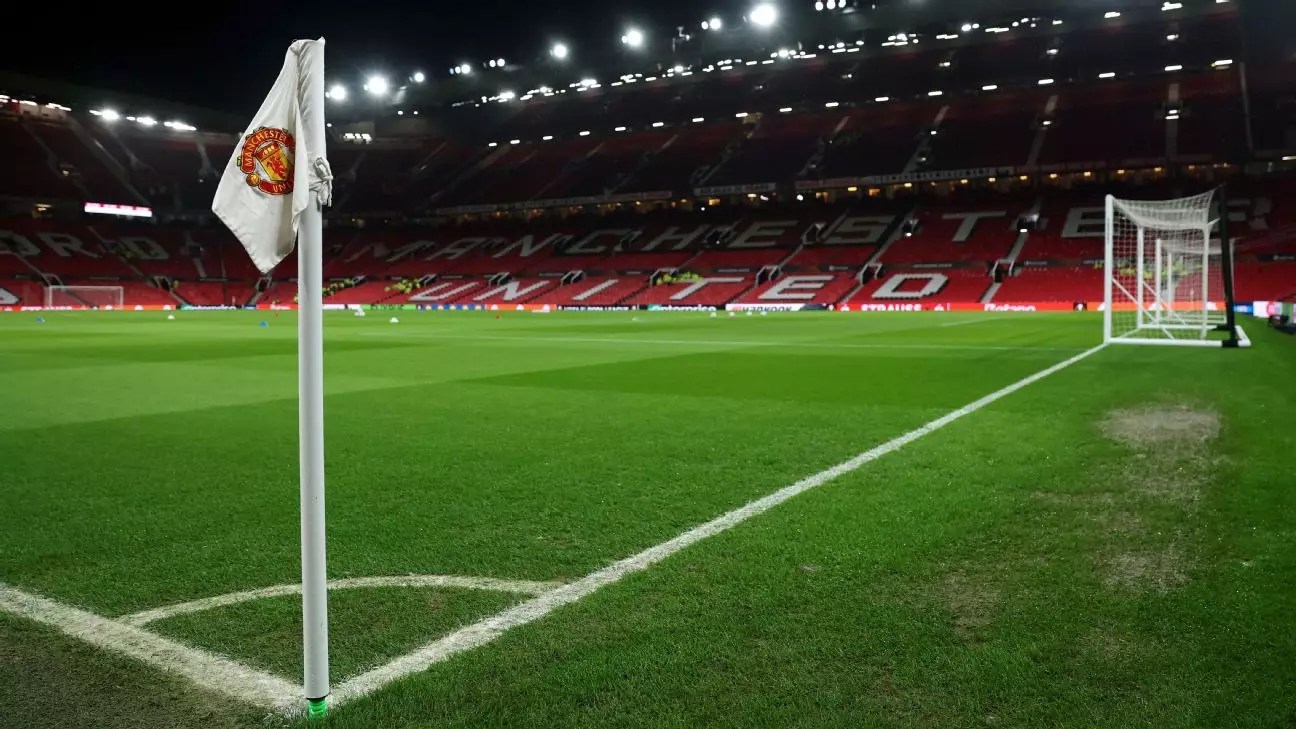Manchester United, a football institution known worldwide, is facing a precarious financial situation that threatens its status both on and off the pitch. In a recent communication with fan groups, the club publicly acknowledged its perilous position regarding the Premier League’s Profit and Sustainability Rules (PSR). As the club grapples with substantial financial losses—reporting nearly £313 million in deficits over the past three years—the implications for player acquisitions and overall competitiveness are deeply concerning.
Over the last three years, Manchester United has accrued staggering losses, with figures revealing a worrying trend of overspending that far exceeds the permissible limits set by the PSR. With a ceiling of £105 million allowed for losses within a three-year window, the club’s current trajectory could lead to severe repercussions, including fines or even points deductions. The acknowledgment of these figures in a letter to fans signifies not only a recognition of their reality but also a desperate cry for understanding and support as the club seeks to recalibrate its financial strategy.
Ruben Amorim, the head coach, finds himself in a challenging predicament, unable to reinforce his squad during the critical January transfer window. The club’s leadership has expressed intentions to return to a financially stable position, a necessary but daunting task that hints at the difficult decisions to come. The warning signs are evident: a club in financial distress often leads to a compromise in performance on the pitch, raising questions about the long-term rebuilding process.
As Manchester United navigates this financial minefield, the new co-owner Sir Jim Ratcliffe has initiated a series of cost-cutting measures aimed at addressing the fiscal improprieties of the past. However, layoffs of 250 staff members reflect the grim reality of the situation, where operational cuts have cascaded down to the personnel level, impacting the very fabric of the club. While financial prudence is vital, the ramifications of such actions could sow discontent and fear among employees and fans alike.
Moreover, the ongoing financial strain has placed key players on the transfer market, including promising talents like Alejandro Garnacho. While the club is reluctant to part with its academy graduates, the mounting pressure may force a reevaluation of their commitment to retaining emerging stars. As offers from rival clubs like Chelsea and Napoli loom, the decision to sell may emerge as a necessary evil in order to balance the books.
Fan backlash concerning rising ticket prices further complicates matters for Manchester United. The recent hike in the lowest-priced ticket to £66—up from £40—has been met with significant criticism from the loyal supporter base. These financial decisions, justified under the guise of recouping losses, may inadvertently alienate the very fans that the club dearly depends on. The club’s promise to reevaluate its ticket pricing strategy reflects an awareness of this discontent, but the question remains: can they strike a balance between financial recovery and maintaining a strong connection with the fans?
In addition to financial woes, managerial instability has marked this tumultuous period for the club. The dismissal of Erik ten Hag just months after securing a contract extension underscores the volatility within the management structure. The swift departure of sporting director Dan Ashworth also highlights the ongoing turmoil, raising alarms about the long-term strategic direction of Manchester United. Without a solid vision and leadership, the club risks further decline amid its already challenging circumstances.
As Manchester United stands at a crucial juncture of its storied history, the current crisis presents both a significant challenge and an opportunity for reflection and transformation. The club must navigate through its financial adversities with strategic foresight and a commitment to restoring its status as a top competitor in English football. Engaging transparently with supporters and rebuilding trust will be paramount in this journey toward recovery. The road ahead may be fraught with difficulties, but unity among the club, its staff, and its fanbase could forge a path to a sustainable and fruitful future.


Leave a Reply